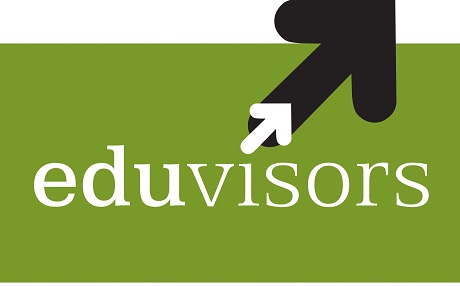New Education Policy – Takeaways & Implications
- August 13, 2020
- Posted by: Eduvisors
- Category: Blogs

In a landmark decision to reform the traditional face of education in the country, the Government of India through its Ministry of Education (formerly MHRD) has accepted and enforced the New Education Policy (NEP) for all educational institutions in the country. The policy has been designed by an expert committee of eminent educationists that submitted a draft to the government in December 2019. This newly applicable policy finds its basis in the idea of making education more accessible for all learners.
The new policy puts fourth radical changes across all spheres of education. Starting from foundational schooling to post professional and vocational education. Through the enactment of this policy, the government has made its revolutionized stance towards the internationalization of education very clear. Future generations stand to benefit a great deal from the changes presented in the policy that comes after a 34 year hiatus.
So what has really changed for schools?
The NEP 2020, takes the present system of learning and flips it on its head. There are visible changes across all delivery models and even talks about holistic development of the students and technical grooming of teachers that can empower young minds to become future leaders.
The schooling segment is perhaps one of the most influenced segments with monumental implications for future learners. Here’s why:
- Formalized Early Childhood Care & Education with a national curriculum framework to be made available to all
- Re-purposing school complexes as adult & vocational education centers during non-school hours for optimum utilization of resources
- A redefined academic trajectory of students commencing with the foundational (3+2), preparatory (3 years), middle (3 years) and secondary (4 years) phases being the new face of schooling
- State level exams across grades 3, 5 and 8th in addition to mandatory board exams as per the current regime
- Centralized assessment centers will be established for Performance Assessment, Review and Analysis of Knowledge for Holistic development of the children (PARAKH)
- Reformed report cards consisting of peer reviews in addition to teacher feedback
- Recruitment of local artists and craftsmen will promote regional arts in schools
- Integration of vocational skills from grade 6 with practical experience to willing learners
- No hard separation between streams of arts, science & commerce with greater flexibility being made available to the students
- Special provisions for gifted children
There are a lot more indirect implications for schools mentioned within the policy over and above the aforementioned list. Schools have now been enabled to provide futuristic education with the use of technology in the classroom, however it has been observed that teachers are opposed to the idea of infusion of modern teaching techniques within the classroom. This also finds redressal in the policy which places a heavy emphasis on the investment in teacher education and their professional development. A rather staggering change is the change in mandated teacher qualification to a 4 year integrated B.Ed degree as opposed to 2 years at present. A special curriculum shall be designed for new teachers that will enable them to impart knowledge using modern teaching techniques and reformed pedagogies thereby enabling future learners to become competent for the real world.
And what about higher education?
Under the new policy, the government has categorically emphasized the importance of multidisciplinary education across the higher education segment. This renewed understanding represents the governmental push to make the economy more self-reliant and harness its own capabilities before seeking outsider assistance. In it’s endeavors to promote the entrepreneurial spirit, the government has made value-based education a new foundation to be imbibed within the course structure. In fact, there is also a reassessment of what courses should continue to exist in terms of availability of employment and what skills have now become irrelevant and should therefore be discontinued.
Specifically, the government has put forth both regulatory and operational changes in the higher education sphere, such as:
- Institution of a single oversight body called Higher Education Commission of India (HECI) to govern all higher education institutions except those that specialize in the medical & legal niche
- A unilateral set of governance norms for both public & private institutions
- Creation of professional standards in accordance with global norms by Professional Standard Setting Bodies (PSSB) in place of the existing 17 professional councils
- Creation of Multidisciplinary Education & Research Universities (MERU’s) with the aim to reach global status
- All new institutions will be required to offer Open Distance Learning (ODL) and online programs once accredited
- Multiple entry/exit options shall be available to students to leverage with undergraduate courses to be of 3-4 years including a year of research
- The installation of high performing universities globally to set up centers in India will be encouraged
Alongside the changes mentioned above the policy also sets bold targets for the coming years such as increasing the GER in higher education including vocational learning to 50% by 2035 and increasing public investment in education to amount to 6% of GDP by the next decade.
What else is on the table?
In addition to the many visionary changes suggested by the policy, there are several small but significant revisions that the government plans to implement in due course. There is a strong inkling to promote the preservation and promotion of local arts, culture and language through education. Further, the infusion of technology in education has been stressed upon emphatically with the setting up of National Education Alliance for Technology (NEAT) and Artificial Intelligence enabled research centers across the nation. Adult education is yet another aspect that finds mention within the policy that posits creation of Adult Education Centers (AEC’s) through optimum utilization of school infrastructure for the same.
The policy clearly provides a framework of operation for new and old institutions and re-imagines the fate of education in the country in the coming years. It is indeed an advantageous for a nation to recognize education as a pivotal pillar in the success of its economy and it’s people. Seeking to expedite the implementation of these efforts, the government has already set aggressive timelines and is positioned to bring the entire policy into force by 2040. For a detailed understanding of the NEP and all it’s nuances, read through our monograph here.
Do you have questions about how Eduvisors can help ? Send us an email and we’ll get in touch shortly.
